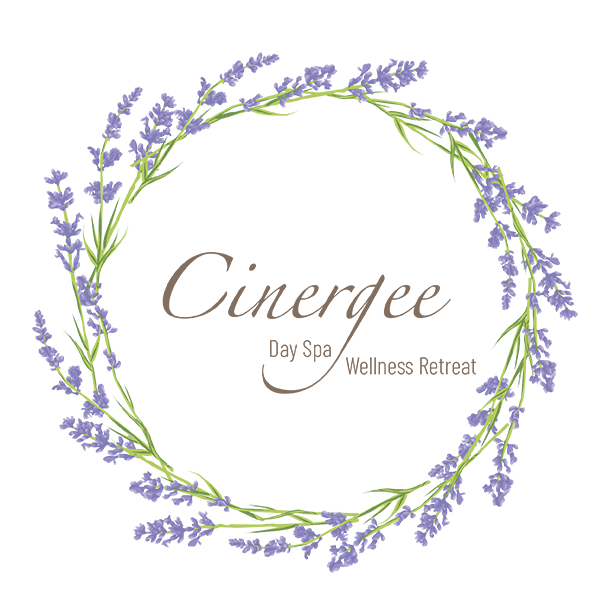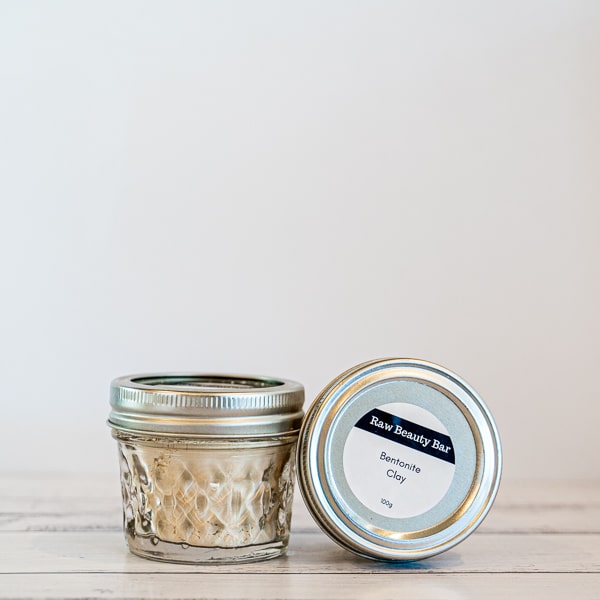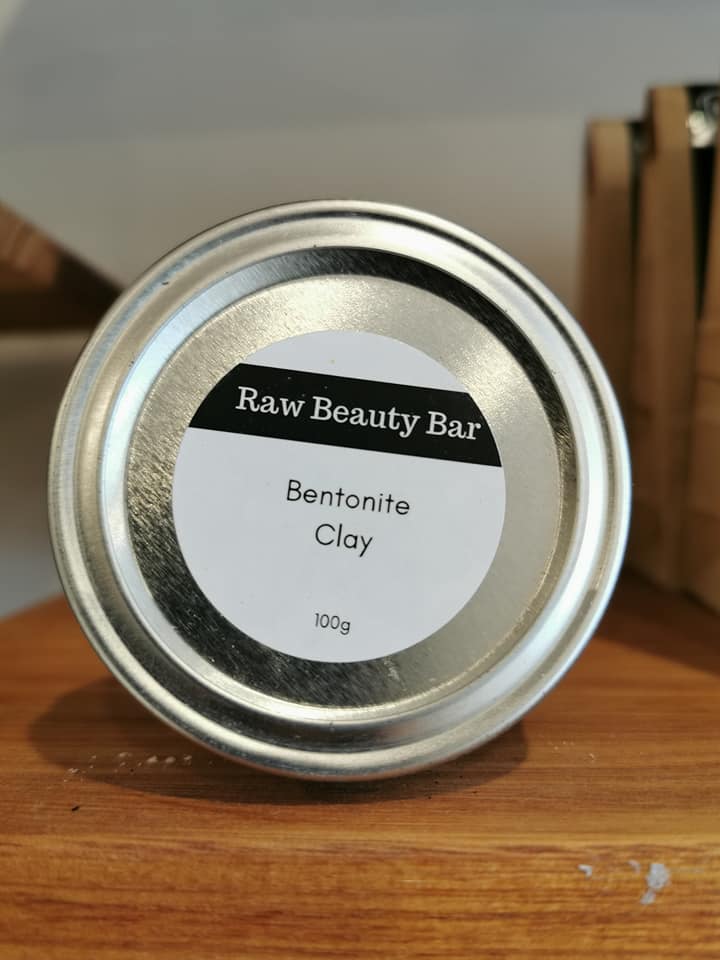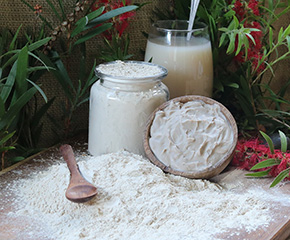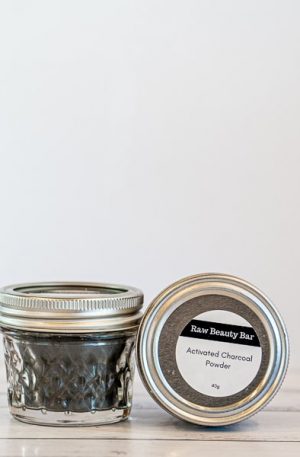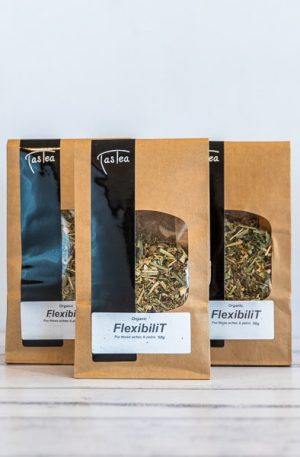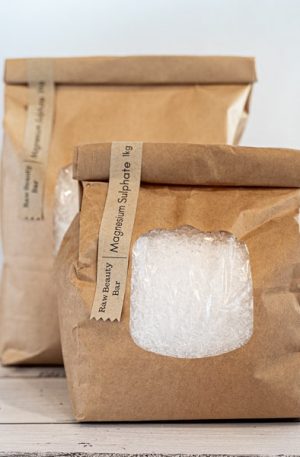What Is Bentonite Clay?
Bentonite clay is said to be one of the most powerful healing and cleansing clays. It’s also called Montmorillonite, and it’s one of the most popular clays today. It is formed from volcanic ash and it contains different minerals (also known as trace minerals), such as iron, calcium, potassium, magnesium, and sodium. When it comes into contact with water, Bentonite clay gets a negative electric charge; that means that it helps to remove toxins, dirt, and impurities from the skin and our system. It can be used both internally and topically, to detox, cleanse, and heal.
The two main types of bentonite clay are sodium and calcium clay, based on the most abundant mineral in the clay.
How does bentonite clay work on skin?
Bentonite clay helps to adsorb oils, toxins, dirt, and impurities from the skin. It acts like a “glue”; it sticks to the molecules of these toxins, removing them from the skin. According to ResearchGate, Bentonite clay carries a uniquely strong negative electrical charge which causes it to magnetically attract any substance with a positive ionic charge (i.e. bacteria, toxins, metals, parasites, fungus, etc).
Bentonite clay is not the only cosmetic clay that we know though, there are many different clay types out there and they are all different; some are great for normal skin, others for mature, and some for oily skin type.
Is bentonite clay good for your skin?
We are surrounded by pollutants on a daily basis; free radicals, dust, sun exposure, and more. Our faces are the frontlines of the exposure and washing it with just water won’t always do. That’s where clay comes in handy. It helps to reduce the toxins on the skin’s surface while benefiting out skin in other ways as well (we’ll talk about that in a minute)! But not all skin types will do well with this type of clay. If your skin is dry or sensitive, it’s best to avoid Bentonite and choose another clay that’s more gentle and not as drying. The best option would be white kaolin clay, which is safe to use with any skin type. Bentonite is best for oily and acne-prone skin and even then I don’t recommend using it more than a few times a week. It’s very drying and using it excessively can cause skin irritation.
Helps to control sebum
Too much sebum and bacteria on the skin can cause acne and breakouts. Bentonite clay helps to remove the excess oil from the skin surface, removing blackheads and whiteheads at the same time. By removing bacteria, sebum, and impurities from the skin, it helps to minimize the appearance of acne with regular application. Some have tried clay when nothing else worked and was blown away by how effective it really is.
Helps to unclog and minimize pores
Let’s face it, clogged pores happen. With negative charge, clay helps to remove impurities and dirt from the skin, unclogging the pores at the same time. It also helps to prevent blackheads and blemishes. Clay helps to open, clean, and minimize pores, making your skin seem more evenly toned and smooth. Since it’s charged negatively, it helps to remove toxins and other harmful components from your skin. That’s how it improves the overall skin tone and health, promoting glowing skin.
Gently exfoliates the skin
Clay is a natural exfoliator, which is a welcome benefit since not all scrubs are beneficial to skin health. They help to remove dead skin cells, stimulating it and promoting the growth of new cells, while improving circulation at the same time. The better the circulation, the more nutrients reach your cells. Clay and its exfoliating properties help to clear up skin, giving it a healthy glow and a smoother skin.
Minimizes scars
Clay can help stimulate skin, boost circulation, and promote elastin and collagen production in the skin. Since it increases blood flow to the cells, it may help increase cell regeneration and minimize scars in return. I haven’t found any official research on the subject, but dozens of online claims from satisfied users confirm this benefit. Those who tried it, also say that it may minimize the appearance of stretch marks. It doesn’t only regenerate skin tissue but it also helps to rejuvenate it naturally.
Helps with pain, inflammation, injuries
Using clay as a compress can boost healing process of the skin in case of injuries, cuts, wounds, and even sunburn. Clay helps to regenerate the damaged tissue. With regular use of compresses, the skin heals but all the materials you use should be made of cotton and natural ingredients.
How to use bentonite clay for skin?
Bentonite clay, along with other cosmetic clays is a very versatile ingredient to keep at home. It’s been a stable in my house for years; I’ve used it internally and topically for a number of issues and what I love about it most is that it’s affordable and effective.
Bentonite clay uses for skin:
- To fight acne with a facial mask
- To cleanse and rejuvenate the skin as a facial or body mask
- In a DIY deodorant to make a toxin-free option to commercial deodorants (even though it doesn’t work the same for everyone and I found it to be ineffective during warm and summer months)
- As an armpit detox mask
- Homemade clay soap, which is great for acne and oily skin
- In a homemade oil cleanser to gently exfoliate and remove makeup
- For a foot soak or detox bath
- As a foot mask
- Bentonite clay mask for hair
Additional uses of bentonite clay, that I practice when needed are:
In a toothpaste
For cuts, burns, and sores on the skin (a clay poultice improved skin healing)
For sore throat with a clay poultice
For internal detox
Bentonite clay mask benefits
In short, these are the benefits of a bentonite clay mask:
- Draws toxins from the skin
- Increases microcirculation
- Promotes soft and smooth skin
- Regenerates and rejuvenates skin
- Brightens skin
- Works as a natural exfoliant
- Unclogs and minimizes pores
- Reduces acne
- Controls sebum on the skin
- Boosts skin healing process
To mix and blend your home mask – research online for some recipes
